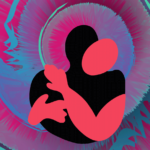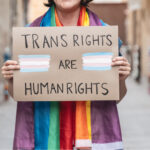The strategy will be driven by a ‘nothing about us without us’ approach, says the government.
The Albanese government has announced the establishment of a 10-year national action plan for the health and wellbeing of the LGBTQIA+ community, including $26 million in funding for research into new and improved ways to provide healthcare.
Speaking at the Sydney World Pride human rights conference today, Ged Kearney, Assistant Minister For Health And Aged Care, said the government had reacted to the “hard work” of the LGBTQIA+ community’s activism, advocacy and persistence.
“We acknowledge that the health system does not work well for gender- and sexuality-diverse people,” Ms Kearney said. “We’ve heard you, and we won’t rest on our laurels.
“We will put [the community] at the heart of the co-design process. For far too long you have been without the support of the government.
“I see you. I hear you, and I want to stand with you. I can’t wait to work with you.”
Ms Kearney was involved in a roundtable discussion yesterday which she described as the “first step in a national consultation that will inform the action plan”.
An LGBTIQA+ Health Advisory Group will be established to guide its progress. The funding will be administered through the Medical Research Future Fund.
Health Minister Mark Butler said: “As World Pride celebrations continue in Sydney, there is no better time to demonstrate how committed this government is to health equality.
“The plan will guide the reforms needed to ensure LGBTIQA+ Australians are given every chance to live healthier lives.”
Teddy Cook, ACON’s director of community health, said it was “fantastic news” and a “delighted” Darryl O’Donnell, CEO of the Australian Federation of AIDS Organisations, said the investment promised to be a game changer.
“It will transform our understanding of LGBTIQA+ health and properly inform the scope, scale and character of health services needed to arrest the health crisis facing our communities,” Mr O’Donnell said.
“There is incredible diversity across LGBTIQA+ communities, all of which must be understood if we’re to create more responsive primary health care services.”
Dr Ruth McNair AM, a GP and honorary associate professor in the department of general practice at the University of Melbourne, said in her presentation that trauma was at the heart of the challenges faced by LGBTQIA+ when seeking quality health care.
“Trauma is alive and well in our day-to-day experiences of rejection, exclusion, violence and discrimination,” Dr McNair said.
“It’s not just overt, it’s also in the microaggressions in our families, schools and workplaces, which should be safe spaces.
“Our younger people are feeling stronger and more resilient and they are coming out in numbers, and that’s great. But it is also leading to more violence towards them.”
Dr McNair said of 6390 young LGBTQIA+ respondents two-thirds had reported suicidal ideation, but only one-third of them have sought professional support, and only half of those felt the professional support was helpful.
“Their needs are not being met by the healthcare system,” she said.





